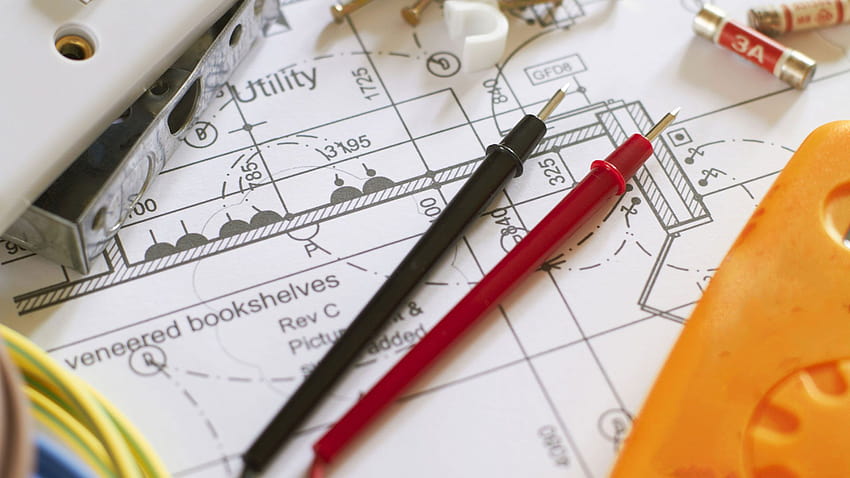
Shocking Insights: Illuminating the World of Electricians
- by Jose Bryant

Behind the flick of a light switch or the hum of an appliance lies a world that often goes unnoticed, yet is essential to our daily lives. Electricians, the skilled professionals who bring power and connectivity into our homes and businesses, operate in a realm that is both fascinating and crucial. Their work empowers us to thrive in a modern society, enabling everything from basic lighting to complex electrical systems that support our technology-driven existence.
However, the life of an electrician is not just about fixing wires or installing outlets. It involves a deep understanding of electrical theory, safety regulations, and the ability to troubleshoot problems that can arise in a myriad of forms. As we delve into the realm of electricians, we uncover the challenges they face, the skills they possess, and the surprising variety of roles they assume in our increasingly electrified world. Prepare to be enlightened about this often-overlooked profession and the vital contributions electricians make to our lives every day.
The Essential Role of Electricians
Electricians play a crucial role in maintaining the safety and functionality of our buildings and infrastructure. Their expertise is vital for the installation, maintenance, and repair of electrical systems, ensuring that homes, offices, and industrial facilities operate efficiently. By adhering to strict safety standards and regulations, electricians protect both property and lives from potential electrical hazards.
In addition to their technical skills, electricians serve as important problem solvers. They diagnose electrical issues that may arise and implement effective solutions to prevent further complications. Whether it is troubleshooting a power outage or upgrading outdated wiring, their knowledge and experience are essential in providing reliable electrical service to meet modern demands.
Furthermore, electricians are key contributors to the growing trend of sustainable energy solutions. With the increasing adoption of renewable energy sources such as solar panels and wind turbines, electricians are instrumental in integrating these technologies into existing electrical systems. Their skills not only enhance energy efficiency but also support the transition to greener energy practices, shaping a more sustainable future.
Safety Practices in Electrical Work
Working as an electrician involves significant risks, which is why safety practices are paramount. Electricians must always prioritize their safety and that of others by wearing appropriate personal protective equipment (PPE). This includes insulated gloves, safety glasses, hard hats, and non-conductive footwear. Ensuring that all tools and equipment are in good condition and rated for the specific job is also critical to prevent accidents and electrical hazards.
Additionally, electricians must adhere to strict procedures when working with live circuits. This involves properly de-energizing equipment before beginning any work and using lockout/tagout (LOTO) systems to ensure that circuits remain inactive. Knowledge of the correct methods for grounding and bonding electrical systems is essential to minimize the risk of electrical shock. Regular training in emergency procedures also helps electricians to respond effectively in case of an accident.
Lastly, understanding and implementing local and national electrical codes is crucial. These codes set the standards for safe electrical installations and must be followed to avoid dangerous situations. Electricians should also conduct routine safety audits of their work sites to identify potential hazards and rectify them before they lead to accidents. By adhering to these safety practices, electricians can create a safer working environment for themselves and the public.
Navigating Electrical Codes and Standards
Understanding electrical codes and standards is crucial for electricians ensuring safety and compliance. These regulations are established by national and local authorities and dictate how electrical installations must be carried out. The National Electrical Code (NEC) in the United States, for instance, sets the groundwork for safe electrical design, installation, and inspection practices. Electricians must be familiar with these codes to protect themselves and their clients from potential hazards.
Electricians must also stay updated with any changes to local amendments and codes. These regulations can vary significantly by location, reflecting the unique needs and safety concerns of different communities. Regular training and certification renewals help electricians understand modifications in the law and adopt new technologies and methods effectively. Staying informed about these standards is not only a regulatory requirement but also enhances their professional credibility.
In addition to formal codes, electricians should be aware of industry best practices. These practices complement legal requirements and promote safety, efficiency, and sustainability in electrical work. By adhering to both codes and best practices, electricians can ensure they deliver high-quality service while minimizing risks for themselves and their clients. Collaboration with other professionals in the field also fosters a culture of safety and excellence, ultimately benefiting the entire industry.
The Future of the Electrical Industry
As technology continues to advance, the future of the electrical industry is set to undergo significant transformations. The rise of smart homes and the Internet of Things is reshaping how electricians approach their work. Today’s electricians are not just installing wires and circuits; they are integrating complex systems that require a deep understanding of software and connectivity. This shift will demand continuous education and training for electricians, ensuring they remain at the forefront of innovation and technology.
Sustainability is also a driving force in the evolution of the electrical industry. As more emphasis is placed on reducing carbon footprints, electricians will play a crucial role in implementing renewable energy solutions. Solar panel installations and energy-efficient systems are becoming increasingly common, and electricians will need to adapt to these changes by gaining expertise in green technologies. This transition not only benefits the environment but also opens up new opportunities for electricians to diversify their services.
Electrician West Orange
Lastly, the demand for skilled electricians is projected to grow in response to both technological advancements and increased urbanization. As cities expand and the need for infrastructure improvements rises, electricians will be essential in maintaining and upgrading electrical systems. The industry is likely to see an influx of new talent, driven by a younger generation recognizing the potential of a career in electrical work. With a focus on training and apprenticeship programs, the future looks bright for those entering this vital field.
Challenges Faced by Electricians Today
Electricians today encounter a variety of challenges that complicate their work. One significant issue is the increasing complexity of electrical systems due to technological advancements. As smart homes and renewable energy sources become more prevalent, electricians must continuously update their knowledge and skills to keep up with new technologies. This demand for ongoing education requires time and financial investment, which can be burdensome for many professionals in the field.
Safety concerns also pose a major challenge for electricians. The risk of electrical shocks, falls, and exposure to hazardous materials remains high. As regulations evolve, electricians must be diligent in adhering to safety standards while also managing the pressures of meeting project deadlines. This balancing act can lead to stress, making it essential for electricians to prioritize safety without compromising their productivity.
Finally, the labor market for electricians is facing a shortage of skilled workers. This scarcity increases the workload for existing electricians, often leaving them stretched thin with multiple projects. As demand for electrical services continues to rise, this challenge puts pressure on electricians to deliver quality work under tight time constraints. Addressing this labor gap is crucial for ensuring that the electrical trade remains viable and capable of meeting future demands.
Behind the flick of a light switch or the hum of an appliance lies a world that often goes unnoticed, yet is essential to our daily lives. Electricians, the skilled professionals who bring power and connectivity into our homes and businesses, operate in a realm that is both fascinating and crucial. Their work empowers us…